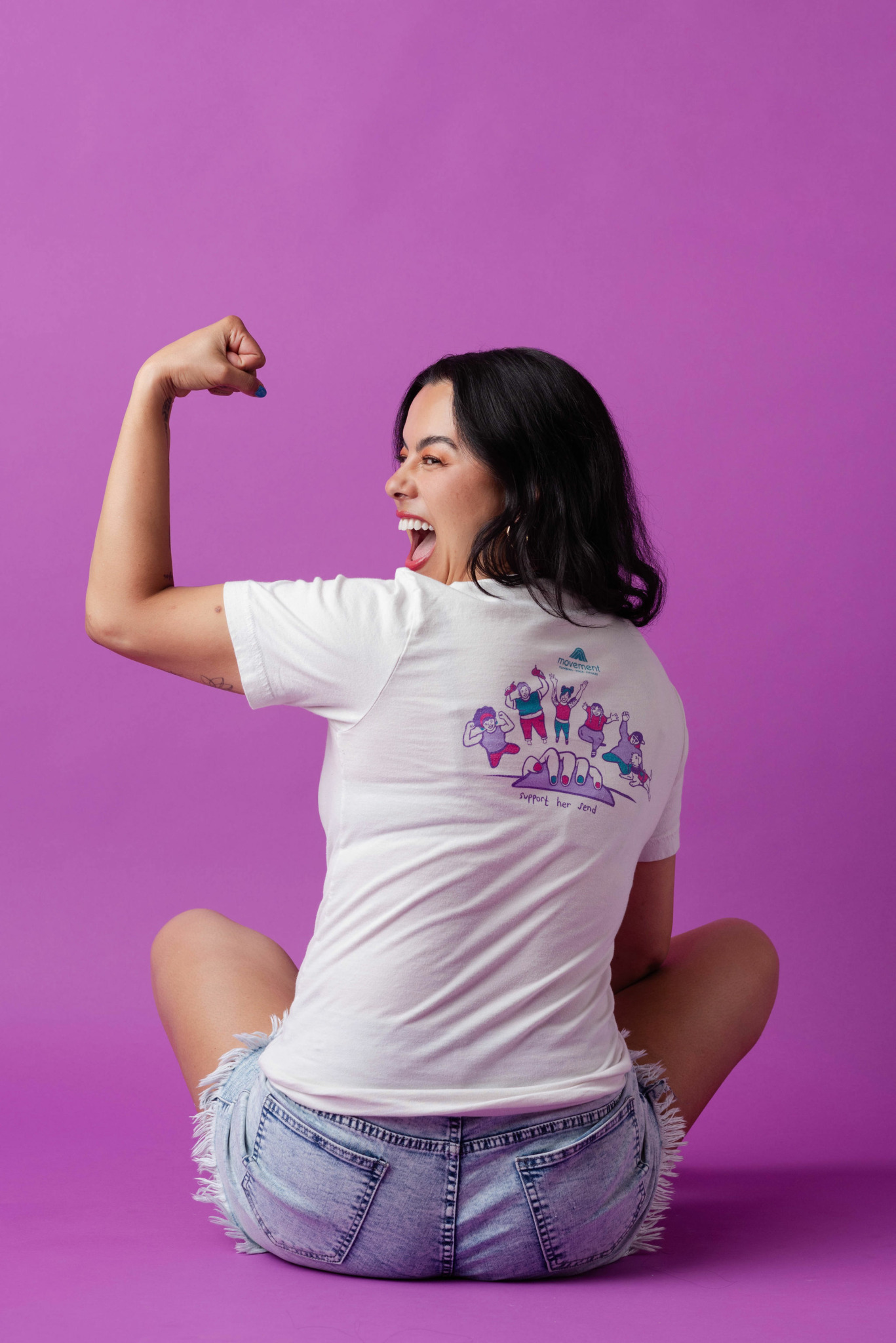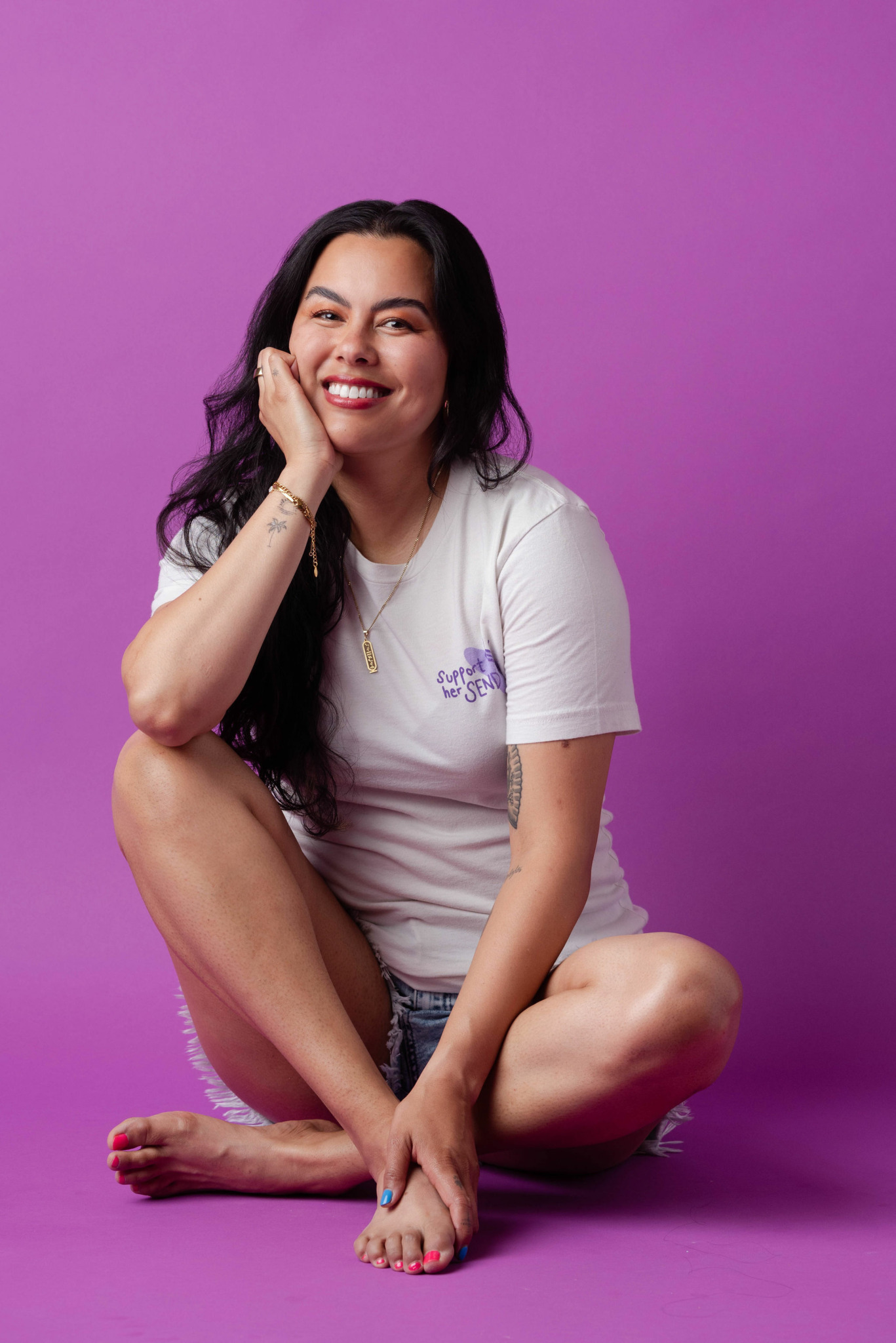We recently connected with Jennifer Whang and have shared our conversation below.
Jennifer, looking forward to hearing all of your stories today. We’d love to hear the backstory of how you established your own practice.
I remember graduating from Graduate School in 2015 in getting my Master’s in Marriage and Family Therapy. Going to graduate school and getting a degree in therapy was something I had my eyes set on since I was in high school, but the thought of achieving it seemed out of reach for me. Going through my graduate program and having my first hand experience of doing my own therapy was eye-opening in several ways. I had a great relationship with my therapist and it was my first time having a therapist who was a woman of color. I felt validated, understood and seen by her, along with also challenged by her in the best ways possible. When we finally closed I just remember thinking I wanted to be like her in supporting others through their journeys and helping them get to a space of authenticity.
The thought of doing that on my own didn’t seem possible for many years because I had this narrative that I wouldn’t be good enough and that people would think I didn’t know what I was talking about. This led me to my first job outside of graduate school where I worked at a community outpatient mental health clinic. This was my first big girl job and real taste of the mental health field from what felt like a corporate structure. The initial shine of this new job and stable income that felt high at the time felt like “I made it!”, but that quickly decreased when I started experiencing symptoms of burn out due to demanding caseload and expectations of sessions that needed to be met weekly. I started to question if this was truly the way in practicing therapy and offering services to people, and for me, it didn’t feel like this was it and that there had to be more. When I finally left that place I remember wanting to get out of there as soon as possible and I metaphorically ran to my next job opportunity that in retrospect, wasn’t as thought out. I briefly worked at a private practice thinking this was the way to go and to decrease experiences of burnout, but unfortunately instead experienced discrimination. Coming from Los Angeles where I was born and raised by my Immigrant parents, discrimination was something that I had some experience on but not at the level when I lived in New York.
I started to apply to other jobs that were in the area and realized I didn’t want to impulsively make a decision but also knew I couldn’t stay in the environment I was currently in. This led to my next job where my former supervisor would reach out to me immediately after sending in my application. The position was a completely different style of therapy services offered to the local community, it was home-based and family focused. I remember feeling intimidated by this role but also intrigued since my background was in Family Systems, the idea of being able to work with all members of the family promised to be more impactful for all individuals. I started this role and continued to be in my position for a few years and I grew to love the work I got to do with the local community and the ways I supported my families. What stuck out to me was working with families of color from different backgrounds, whether local, immigrants, or refugees. I felt some strange sense of connection and comfort with them, possibly because of growing up in an Immigrant household. We would have rich and honest conversations around their cultures, their values and navigating a Western and American society.
This work started to create a inner voice within me thinking about what it would be like to work with people from different backgrounds offering therapy services, but in a non-traditional sense. This started my idea of starting my own practice and focusing on working with BIPOC communities, that included individuals, couples and families. This voice and idea continued to stew within me for at least two years, but I kept having doubts thinking I wasn’t going to be helpful and that this wouldn’t make sense. Then I came to an impasse with my role at my job where it was time for me to explore and grow more but that led to shifting away from my current role. I decided then to take the risk on myself and start my own private practice. The anxiety and fear that I had thinking I would fail and that I wasn’t good enough would swirl in my head almost every day. I can remember when I made my IG post stating that I started my own practice and was accepting clients and highlighting my niche. The support and love I received from friends and family was incredible. It wasn’t long before clients were seeking me out and expressing their appreciation and curiosity in working with a therapist who had similar identities to them and realizing that mental health was a predominately white space. The need for therapists of color was and is still needed in this field, and what’s beautiful to see is how the mental health field is shifting to create more culturally responsive education, more inclusion among therapists and clients.
I think about anyone wanting to pursue their own practice and offer services to give themselves time to think about what drives them about their work in the field and to create their own niche. As scary as it may be in doing so, I guarantee that there are people out there looking for therapists like you that specialize in what you do so don’t ever downplay yourself or think you aren’t capable of doing this. I think it’s important to know that you’re also going to continue to learn and evolve, and that’s vital in this field.

Awesome – so before we get into the rest of our questions, can you briefly introduce yourself to our readers.
My name is Jennifer Whang and I’m a Licensed Marriage and Family therapist that specializes in identity and intersectionality. I offer telehealth services to people in New York and Colorado. I work with individuals, interracial/ intercultural couples, and families. I’m a daughter of Immigrant parents and I’m mixed-race. These identities are important to me in how I show up in the world, but also I do therapy. I help clients gain a better understanding of themselves and practice self-love and compassion. More often than not, my clients coming to me are from Immigrant households and hold limiting beliefs about themselves and the high expectations they’re told to meet. I support my clients in exploring those narratives and deciding what, if any, benefit them and what are ones that they may want to re-evaluate. I think in the work with children of Immigrant families, there are nuances that feel taboo to explore and have yet to gain much research on because the origin of mental health is mainly from white-cis men. As the field has evolved throughout the years and the social events that have taken place, the importance and need for representation in all spaces of society has become more prevalent and I love that.
I’m also a huge advocate for wellness encompassing not only mental and emotional, but physical. Something I explore with my clients is how stress and mental health experiences can show up in the body masked as hypertension, high blood pressure, and other diseases. There continues to be growing research and evidence showing how mental and emotional health impact our physical health and it’s something worth continuing to explore. With that being said, I love being active and something I’ve done for some time now is rock climbing, more specifically indoor bouldering. This is experience is not only therapeutic but I find it applicable to what I support my clients in harnessing and that is trusting themselves. When doing climbing routes, people do them differently and it’s a problem you solve on your own. So much of the process of achieving the climb is combating the mental doubts that seep in thinking “I can’t do it” and sometimes pushing past that to actually do the scary thing. I share this analogy with clients who’ve been conditioned to listen to everyone else’s voices except their own. I really support them in exploring their own voice and empowering them to trust themselves more and gain confidence in knowing how resilient they truly are.

What do you think helped you build your reputation within your market?
I think some things that helped build my reputation is the experience I’ve gained from working in various settings and also understanding and accepting that a therapist “doesn’t look and present in one way”. Giving myself freedom to show up more authentically in a therapeutic space created an impression with clients over the years leading to word of mouth about how I do clinical work. I very much lean into collaborating with my clients in their stories of themselves and being engaged in that process with them fully. I think my reputation has continued to build naturally over time in trusting myself in how I show up as a therapist and person in the room. When I find myself comparing to other people, that’s often when I question if my reputation is “enough”. Yet the irony of that is that then I’m somehow reminded that my work with clients matter and it’s important to them and to the space of mental health. This has usually come in forms of former clients reaching out and just sharing their appreciation for our work. These don’t happen often, but when they do, I remind myself that I’m building my reputation as a therapist and hope to continue to expand in offering services in supporting people live their authentic lives.

Are there any books, videos or other content that you feel have meaningfully impacted your thinking?
I think I could give a list of books that have helped me professionally and personally along with mentors and teachers that have made lasting impressions on me. Some of the books I love and have gained a lot from are “permission to come home”, “set boundaries, find peace”, “how to do the work”, “sometimes therapy is awkward”, “the four agreements”, “re-visioning family therapy”, “the mind-gut connection”, “mag or min, which are you”, “going right”, “good anxiety”, and “waking the tiger”. I’m looking to read more books specifically discussing the impacts of oppression and BIPOC communities too so stay tuned for more recommendations!
Contact Info:
- Website: https://jenwhang.clientsecure.me/
- Instagram: https://www.instagram.com/jwhang_happygrowing/
- Linkedin: https://www.linkedin.com/in/jenwhang/




Image Credits
@lovingmycompany- Alice G. Patterson (photographer)


